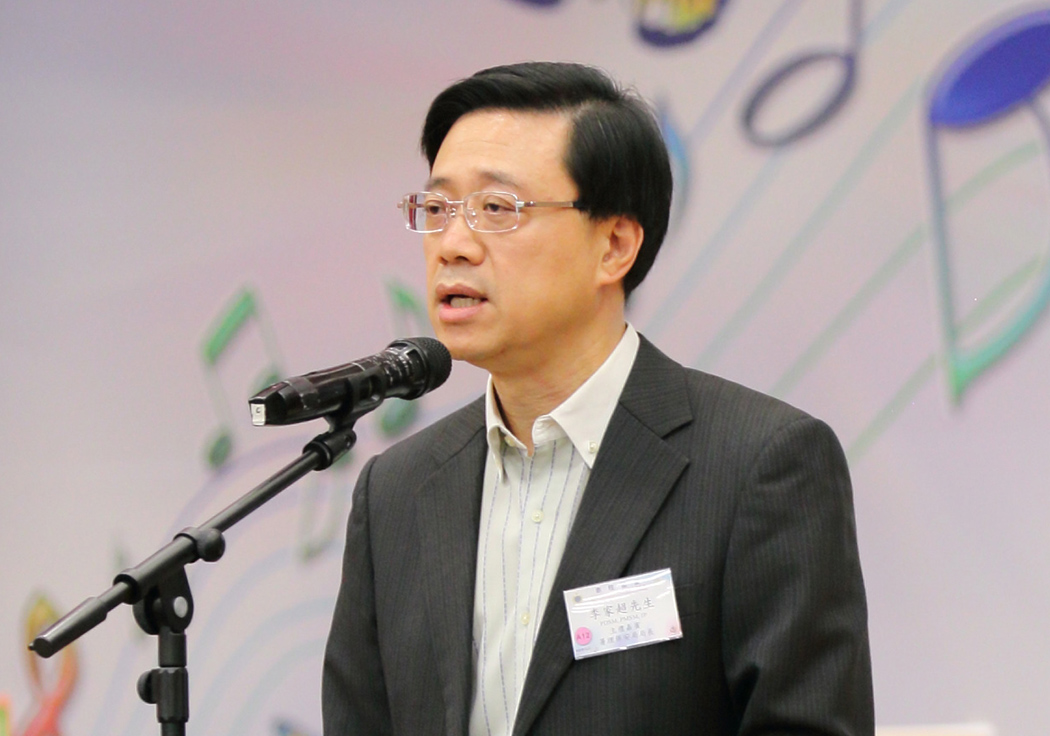Hong Kong’s business sector has poured cold water on the government’s plan to update its extradition laws, a sentiment echoed by political parties across the spectrum in Taiwan.
The American Chamber of Commerce in Hong Kong (AmCham) said that it has “serious reservations” about the proposal and asked for “more narrowly tailored solutions.” In a letter addressed to Secretary for Security John Lee, it said that the city’s international business community has “grave concerns about mainland legal and judicial system.”
“Mainland criminal process has deep flaws, including lack of an independent judiciary, arbitrary detention, lack of fair public trial, lack of access to legal representation and poor prison conditions,” read the letter, which was dated March 4.

If international business executives were seized in Hong Kong due to allegations of economic crimes in the mainland, that would undermine the city’s reputation as a “safe and secure” international financial centre, AmCham added.
Last month, the government proposed a case-by-case system that would allow the city to handle extradition requests from jurisdictions where there are no pre-existing agreements – most notably China and Taiwan.
The move was spurred by the case of Poon Hiu-wing, a pregnant 20-year-old Hong Kong woman who was killed during a trip to Taiwan last February. Hong Kong authorities arrested the woman’s boyfriend Chan Tong-kai but were unable to charge him with murder in local courts. He is, instead, being held on theft charges.
Pro-democracy lawmakers have questioned whether the system would mean Hongkongers could be sent to the mainland over political crimes, but the security chief has denied the possibility since the amendment will explicitly exclude political charges.

However, both politicians and the business community have questioned whether the Chinese authorities could use economic crimes as a pretext for extradition.
The current Fugitive Offences Ordinance covers 46 categories of crimes: at least 12 on the list are related to economic activity, such as “offences against bankruptcy law or insolvency law,” “offences against the law relating to companies,” and “offences relating to fiscal matters, taxes or duties.”
AmCham said in its letter that China is prone to “criminalise what are essentially commercial disputes between foreign and local business interests.”
On Thursday, James Tien – honorary chair of the pro-business Liberal Party – suggested the government should focus on serious crimes like murder, instead of white collar crimes.
“If the government only targets those eight or 10 crimes, then the business sector will be less worried,” Tien said, noting that both local and foreign firms had expressed fears. “I don’t understand why the government would want to cover all 46 categories.”
He added that there were substantial differences between the Hong Kong and mainland legal systems, and he had “seldom heard of businesses winning lawsuits against the government” in China.
Chinese courts have a conviction rate of 99.92 percent.

Both the Liberal Party and the Business and Professionals Alliance previously met with security chief Lee to give feedback.
The public consultation period for the law – which was only 20 days long – ended on Monday. In its letter, AmCham also complained that there was not enough time to scrutinise the amendment.
Democrats visit Taiwan
Four members of the pro-democracy camp – lawmakers James To, Ray Chan, Eddie Chu, as well as former legislator Nathan Law – travelled to Taiwan on Wednesday to meet with the island’s political representatives.
Law said that the group met with representatives from Kuomintang, the Democratic Progressive Party, and the Mainland Affairs Council – an agency under the Executive Yuan that handles cross-strait relations.
“We felt that the Taiwan political sphere, regardless of affiliation, is very concerned about the effect of the law amendment. Taiwan has many citizens working and doing business in Hong Kong, with an average of 1.8 million Taiwanese visitors each year, so the amendment will directly affect their personal safety,” Law wrote.

A representative from the Mainland Affairs Council also told the group that the Hong Kong government has never directly contacted them about the murder case, and the amendment was proposed without consulting the Taiwan side.
Huang Ting-hui, the council’s official responsible for Hong Kong affairs, had previously said that the Taiwanese government “will not accept any act that has the goal of destroying national sovereignty” amid reluctance by the Hong Kong side to strike an extradition deal directly with Taipei.
At a legislative panel meeting, Taiwan’s Democratic Progressive Party lawmaker Tuan Yi-kang pressed his government to clarify its stance on the extradition law proposal.
The four-man delegation from Hong Kong will continue to meet with Taiwanese representatives on Thursday.
